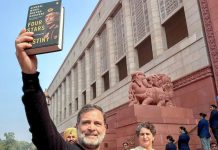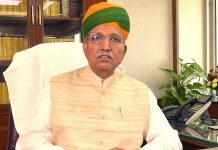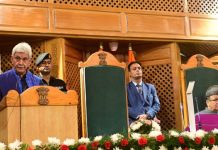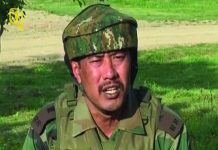
The emerging scenario in new Afghanistan needs to be closely watched as the country is likely to be used for a new Great Game with China, Pakistan, Iran and Russia being the main players
As Afghanistan is being finally vacated by the US to hand over the country to the Afghans, the Taliban movement is all set to capture power again after a gap of two decades. The Taliban factions have proved that they can be defeated but cannot be eliminated by any power on earth. The US and its NATO allies used their massive military might to eliminate the Taliban but in vain. Ultimately, it is the Americans who expressed their desire to facilitate the Taliban’s return to power through a series of talks between Washington DC and the Taliban in Doha (Qatar) as also intra-Afghan dialogue in Moscow involving key Taliban factions and the government in Kabul. The Taliban agreed not to allow Afghanistan’s territory to be used by international extremist outfits like Al-Qaida for terrorist activities and theUS gave an assurance to finally call it quits with all its soldiers leaving the strife-torn country for home by September 11, 2021.
Of course, the Taliban’s style of capturing power is questionable as they are coming to Kabul with their guns blazing in different parts of Afghanistan. But who will question them when the US-led NATO forces are almost out and the Abdul Ghani government appears to be too weak to challenge the Taliban and tell them that their resort to violence may lead to a chaotic situation once again when there will be no gainers? President Ghani has blamed the Americans for the Taliban indulging in bomb blasts almost daily as the US did not properly plan its exit from the country they controlled for two decades. But who listens?
The process of leaving Afghanistan to the Afghans began with the Barack Obama administration taking a decision in this regard in 2014 and President Joe Biden finally concluding the troop withdrawal exercise. And both sides are happy with what they have got. The Americans are going to be out of the morass they found themselves in and the Taliban are getting back the political power they had lost after their country was attacked in 2001 by US-led multinational forces in the aftermath of Nine Eleven.
The US entered Afghanistan to destroy mainly Al-Qaida and the Taliban on October 20, 2001, as also to capture, dead or alive, Al-Qaida chief Osama bin Laden, believed to be the mastermind behind the September 11, 2001, terrorist attacks on New York’s Trade Towers and the Pentagon headquarters in Washington DC. With a view to achieving these objectives, the US and its NATO allies amassed their forces to assist the Northern Alliance led by Ahmed Shah Masood to defeat the Taliban regime in Kabul, established in 1996 under the leadership of Mullah Mohammad Omar.
As a result, Osama bin Laden was killed in a Pakistani city, Abbottabad, by US special forces on May 2, 2011, but that was the only major objective the Americans could achieve. Their objective of eliminating root and branch Al-Qaida and the Taliban remained elusive.
Reports suggest that Al-Qaida re-emerged in the Arabian peninsula and the Taliban continued to fight the foreign forces in their own way, through guerrilla tactics. With the passage of time, the Taliban grew stronger and doggedly pursued their objective of throwing the foreign forces out of Afghanistan. Their argument was that Afghanistan should be given back to the Afghans, and they had the support of not only the Afghan masses but also the majority of the world community in this regard. They also argued that Afghanistan’s problems like ending the internal strife and rebuilding the war-ravaged country can be resolved through their own efforts.
Instead of getting eliminated, the Taliban have ultimately succeeded in forcing the US and its NATO allies to leave Afghanistan to its people. Now all the US troops are set to vacate Afghanistan’s territory by September 11, 2021, exactly 20 years after they invaded this South Asian landlocked country, leaving a stronger Taliban to recapture power and run their nation’s affairs again from Kabul in their own style.
There are reports that, in fact, all the US fighters will depart Afghanistan by August 31, much before the deadline set by the American administration.
The world knows that the Afghans were not the real perpetrators of what came to be called Nine Eleven, but they suffered because Osama bin Laden and other Al-Qaeda leaders used Afghanistan to do what they are accused to have done. Afghanistan was subjected to carpet-bombing to capture Bin Laden, but he slipped into Pakistan where he was located and killed. The Taliban government in Afghanistan collapsed and was replaced by an administration run by the Northern Alliance (read pro-US Afghan leaders), but the Taliban as a movement survived the multinational military onslaught.
An influential pro-US tribal leader, Hamid Karzai, who first headed the interim administration set up in December 2001 for six months following an international conference in Germany, became the President of Afghanistan after a Loya Jirga (a grand assembly of tribal elders) elected him to serve in this position for two years till a presidential election was held in 2004. Karzai remained Afghanistan’s President for two terms of five years till 2014 when he got replaced by President Abdul Ghani through an election.
Both Karzai and Ghani ran their governments with the help of American and other NATO troops, yet their administration’s writ hardly ran beyond Kabul, Afghanistan’s capital. The various Taliban factions have held their sway over much of Afghanistan despite being targeted by the international forces using the Bagram airfield as their base. They proved their capacity to survive and gain strength because of their unflinching commitment to the cause of ensuring that their country must be administered by the real representatives of the people of Afghanistan and not by those who had virtually no mass base.
All these years the government in Kabul could not be run without the military protection provided by the US and its NATO allies. Gradually, the US realised that there was no point in remaining stuck in Afghanistan as its interests could be easily protected from its bases in West Asia.
The emerging scenario in new Afghanistan needs to be closely watched as the country is likely to be used for a new Great Game with China, Pakistan, Iran and Russia being the main players. Mullah Abdul Ghani Biradar’s July visit to China was not the first interaction between the senior Taliban leader and Chinese rulers. He had been to China in the past too on invitation from Beijing.
China wants new Afghanistan to concentrate on its economic development and not on extending any kind of support to the activities of the Uighur Muslims like their East Turkestan Islamic Movement based in China’s Xinjiang province and declared a terrorist outfit by the UN Security Council. The Chinese believe that Taliban-controlled Afghanistan can be kept away from happenings in Xinjiang by making huge investments in the poverty-stricken country under Beijing’s Belt and Road Initiative and by extending the China-Pakistan Economic Corridor to Afghanistan. The Chinese plan to expand their presence in Afghanistan is being facilitated by Pakistan for its own geo-political interests in South Asia. There is, however, a need for caution: China follows an undeclared policy of entrapment through large-scale investments.
Russia too is showing increased interest in Afghanistan because of its motives almost similar to that of China. Moscow may use its growing clout in new Afghanistan to ensure that the Taliban-dominated government in Kabul shows no interest in anti-establishment movements in the Central Asian republics, the Russian allies, which were once part of the erstwhile Soviet Union. Let us hope the Taliban leadership reads the writing on the wall and concentrates on Afghanistan’s economic development and socio-political peace rather than on activities which may take their country back to the days of chaos and internal strife. The opportunity that has come their way must be used for accomplishing the huge task of rebuilding Afghanistan instead of wasting it on extraneous considerations.
The writer is a senior journalist and columnist based in New Delhi. Views are personal
letters@tehelka.com













